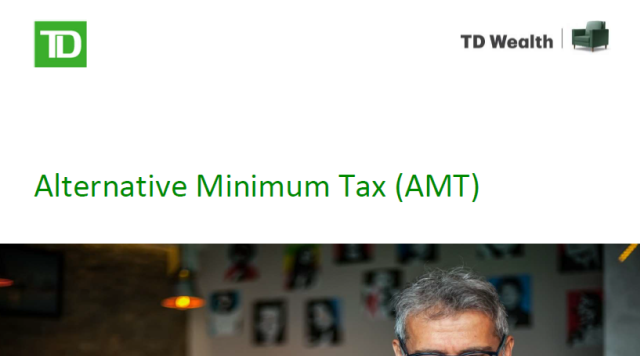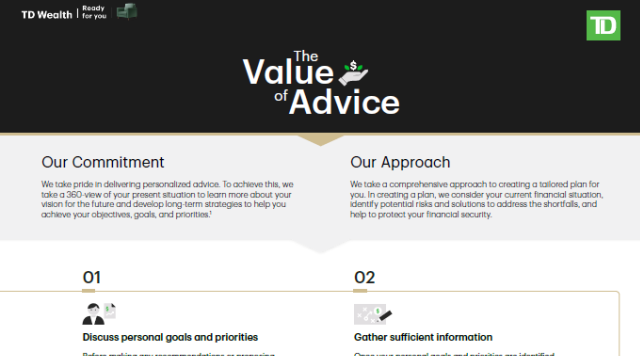Newsletters

Leaving a lasting legacy for your family can involve careful planning and a team of professionals. Here are five questions that can help get you started.

Stepfamilies are common, but planning for who gets what after you die is anything but routine. When families come together, each with their own possessions, ensuring your assets go where you want is key.

Raising a family can put all kinds of pressure on your time and money. Here are a few pointers to help you navigate the “crunch,” so you can be better prepared for the future.

Many parents want to help their kids buy a first home. Is this a good idea, and if so, what’s the best way to do it?

There are lots of well-worn thoughts on retirement. Unfortunately, many of these ideas should have been retired a long time ago. Here are some up-to-date ideas on how you should approach retirement.

Too many Canadians are dying without a Will, leaving children, heirs and assets in limbo. Here’s why you should consider writing your own will today.

Financial scams and fraud come in many different forms. Sometimes they arrive in the form of a text message, email, or phone call, and often these forms for fraudulent communications are designed to look like they are coming from your bank.

We've all received those scary sounding text messages and emails claiming to be from our bank or other service provider. The person calling says that your account has been locked, or that you need to send them a money transfer, and that you need to click this link and enter your personal information as soon as possible, or else.

A doctor? A lawyer? Maybe a software engineer? Who knows what path your child may pursue. We break down the economics of some popular career paths so you can ask: How can I help?

Is there a difference in your rights and responsibilities between common-law and married couples? It may be a good idea to find out before you shack up.

If retirement is on the horizon, but it feels like there's still so much to do, feel free to take a breath. This checklist may help alleviate some of your worries.

The Alternative Minimum Tax (AMT) is an income tax calculation that can result in an unexpected tax bill for the unwary. The AMT rules apply a flat tax rate to income exceeding a certain threshold, which may result in a higher tax liability than would be payable under the ordinary rules. Advanced planning may help minimize the impact of AMT and allow individuals to organize their affairs in a more tax-efficient manner. While all provinces have their own AMT and even trusts are subject to AMT, we will only cover the specifics of the federal AMT as it applies to individual taxpayers.

We take pride in delivering personalized advice. To achieve this, we take a 360-view of your present situation to learn more about your vision for the future and develop long-term strategies to help you achieve your objectives, goals, and priorities.

If you’re a business owner, the federal government’s proposed changes to the capital gains rules may raise questions about your retirement and your ability to grow your business. Pierre Létourneau, Business Succession Advisor, TD Wealth, joins Kim Parlee to talk about ways to navigate the new rules and whether you should be rushing to make any moves.

Capital gains tax changes dominate the federal budget aftermath. Kevin Quach, Business Succession Advisor, TD Wealth, and Sébastien Desmarais, Tax and Estate Planner, TD Wealth, discuss tax planning strategies high net worth individuals and business owners should consider in order to preserve their wealth and legacy.

In its latest federal budget, Ottawa proposed changes to the capital gains tax rules for wealthy individuals and corporations. Nicole Ewing, Director, Tax and Estate Planning, TD Wealth, joins Greg Bonnell to discuss how this budget could impact your finances.

Wondering how or if the federal government’s proposed capital gains tax changes could affect you? Nicole Ewing, Director, Tax and Estate Planning, TD Wealth, joins Kim Parlee to discuss some ways cottage owners and trust holders might be impacted, and strategies to manage the new rules.

The federal government has released its 2024 budget with a focus on new taxes, increased spending and housing affordability. Derek Burleton, Vice President and Deputy Chief Economist at TD, speaks with Greg Bonnell about the economic implications.

The recently released federal budget is looking to boost revenue through new taxes. But it also includes more than $50B in new spending over the next five years. Hafiz Noordin, VP & Director, Active Fixed Income Portfolio Management at TD Asset Management, looks at the implications for the Bank of Canada’s efforts to tackle inflation.

